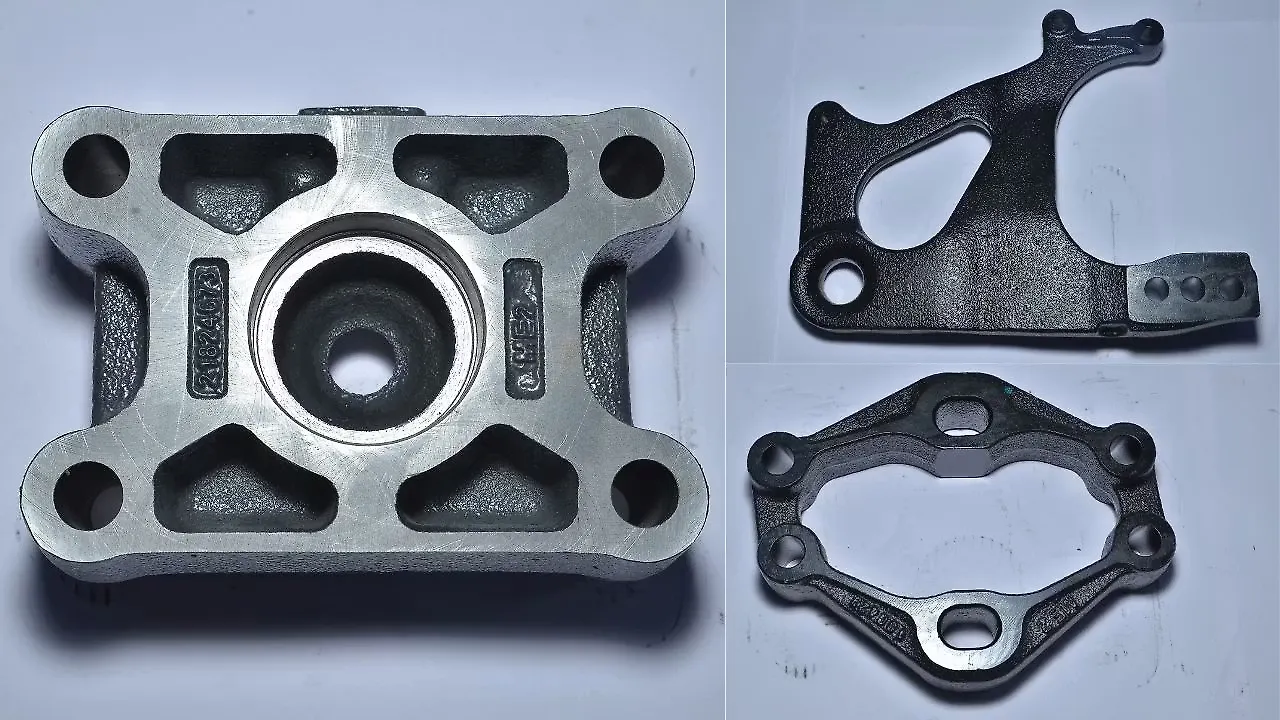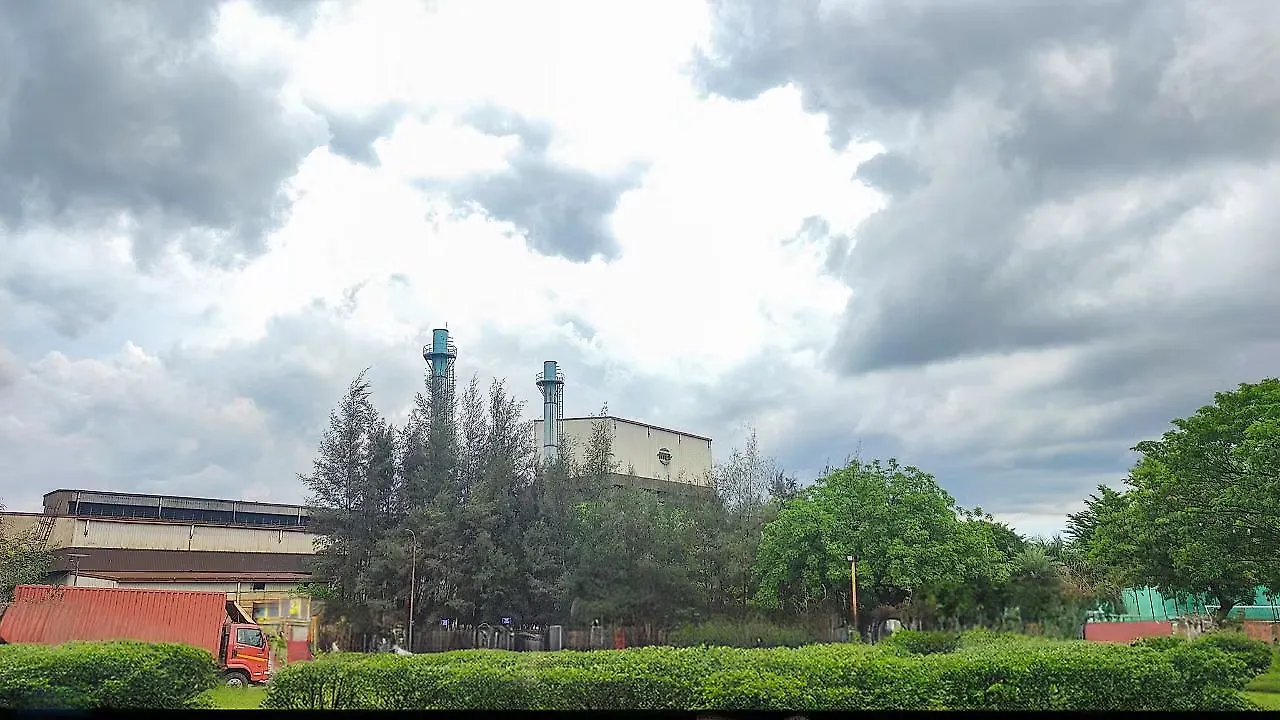
Speaking to Mobility Outlook, Sriram Sivaram, Joint Managing Director, Madras Engineering Industries says: “By simply acknowledging the problem and making isolated decisions, like choosing renewable energy, isn’t enough. The true challenge—and our key transformation—was deeply embedding sustainability practices into the core of our organisation.” Edited excerpts:
Congratulations on joining Volvo Truck Group’s elite green-suppliers and achieving the status of the world’s number one in slack adjusters by volume. Could you share the journey that led to becoming a key supplier to such a prominent OEM?
Our journey as a supplier to Volvo began in 2019, when we started supplying a variety of castings. Interestingly, our initial engagement with Volvo wasn’t a direct pursuit on our part. At the time, we had a longstanding relationship with what is now Cummins Drivetrain and Braking Systems, previously known as Meritor, with whom we had been a supplier for over 20 years. When Meritor decided to re-source some critical parts for an axle they manufacture in Sweden, which is then supplied to Volvo, the change required Volvo’s approval.
Volvo’s supplier development engineer visited our facilities to assess and approve the part. During that visit, he inquired why we had never approached Volvo directly, as they were actively seeking reliable foundry suppliers. Recognizing the opportunity, we expressed our readiness to take on the business, and from that moment, our partnership began to flourish.
Since then, our business with Volvo has grown rapidly. In fact, based on feedback from Volvo, we are considered one of the fastest suppliers to scale up to the current level of business in the casting commodity. Today, the majority of our supplies to Volvo are directed to their U.S. plants, with additional shipments to their facilities in Europe, Brazil, and India
Are you providing fully finished castings?
These are fundamentally fully finished cast commodity parts, meticulously manufactured and shipped ready for seamless integration into their truck assembly lines—whether for engines, axles, or chassis.
How did this evolution lead MEI to its current status?
When Volvo initially began working with us, they had already committed to achieving net-zero emissions by 2040, a goal they started pursuing around 2020. At that time, they approached us, along with other suppliers, particularly those based in India, with a challenge: 'Why can't you also align with this vision?' However, they had their own internal concern as shipping over long distances from India naturally results in a higher carbon footprint compared to sourcing locally within Europe or the US.
Given that Brakes India was already a significant supplier to Volvo, we were also asked to embark on this sustainability journey around the same time. My response was clear: if we were to commit to this initiative, it needed to be a sustainable, long-term effort—not just a superficial move to obtain a certificate and then move on. We were determined to ensure that our approach would genuinely contribute to reducing our environmental impact in a meaningful and lasting way.

Can you elaborate on this?
Fundamentally, we already had a solid understanding of our environmental impact, including the carbon emissions we were producing and the water usage across our operations. We had implemented several initiatives to address these issues even before our collaboration with Volvo. However, Volvo's push for sustainability catalysed a more systematic and comprehensive approach. It’s akin to managing your quality processes effectively, but only achieving true integration across the entire organisation once you pursue and obtain certifications like IATF 16949. Such certifications embed best practices into the daily routines of every level within the company.
With our fossil-free initiative, we sought certification from the Confederation of Indian Industry (CII). Achieving this certification required us to ensure that our entire team was fully aligned and deeply understood the concept of carbon footprint reduction. It’s not sufficient to simply acknowledge the problem and make isolated decisions, such as opting for renewable energy in our foundry. The real challenge—and the significant transformation for us—was embedding these sustainability practices deeply into the fabric of our organisation. This change has been pivotal in making our commitment to sustainability a core part of our operations.
How did you accomplish this?
To achieve this, we went back to Volvo and made it clear that this transformation couldn't happen overnight. It would require time, as it was essential for everyone in the organisation, from top to bottom, to fully grasp and commit to the process. We decided to start with our foundry operations, as that presented the greatest challenge, before extending the initiative to the rest of our business. We owe a great deal of gratitude to specific individuals at Volvo who supported us throughout this journey.
The result is that today, we are a certified green company, both in terms of our products and our overall operations. We have established a solid baseline with high-level metrics, and I’m proud to say that our CO2 emissions per kilogram of casting are now lower than what Brakes India achieved in 2022. They, too, have since made improvements. Looking ahead, we have made a firm commitment that our company will reach carbon neutrality by 2030.
Would it really be that straightforward?
It’s certainly not easy, but it remains our goal. We are determined to achieve it, and we remain hopeful that we will succeed.
That’s an impressive journey. Have you established a separate production line for this?
No, we haven’t created a separate line. We operate a single foundry with two production lines, and both are now fully green. This means that all our customers, regardless of what we supply, are receiving green castings.
Volvo sources approximately 450 million euros worth of castings globally, and currently, you hold a small share of that market. How do you envision expanding your share in the future?Our share is poised to continue growing. Recently, during Volvo’s supplier conference in Bangalore, we were asked about our next steps within the group, highlighting the opportunities ahead. However, our primary growth focus is on advancing our brake business, with the foundry business expanding naturally alongside it. Growing the foundry business is not our top priority, so we’re approaching it with measured caution rather than aggressive expansion.

While we could rapidly scale the foundry business, especially with our green certification, we are mindful of our capacity to manage this growth effectively. It’s essential for us to ensure we can handle what we take on, both in terms of production and quality. Our main focus is on delivering zero parts per million (ppm) defects, which is absolutely critical. In our foundry operations, we’re currently shipping around four to five million machined castings annually, and maintaining zero ppm at this volume is both a challenge and a significant responsibility. We are conscious that a sudden leap to 100 million parts could overwhelm our organization, so we are committed to a controlled and sustainable growth trajectory.
With rising freight charges posing another challenge, how do you remain competitive in the market?
This isn’t the first time the world has faced a crisis, and the current situation like the Red Sea issue and the post-COVID supply chain disruptions, is reminiscent of past challenges.
To put things in perspective, the old ocean freight rate for shipping from India to the US East Coast was about $1,500 to $2,000 per container. Today, the spot rate has skyrocketed to $12,500, and at the height of the COVID crisis, it even reached $22,000.
For casting commodities, where the average value of products in a container ranges between $60,000 and $100,000, a jump from $2,000 to $20,000 in freight costs is unsustainable without eroding margins. It's impossible to manage this without customer cooperation, particularly regarding freight surcharges. Fortunately, during that period, all of our customers were willing to accept these surcharges, understanding the extraordinary circumstances.
However, we knew we couldn’t simply absorb these costs and pass them on to our customers indefinitely, as that approach isn’t sustainable in the long run. Instead, we sought long-term contracts to stabilise our freight costs. While we have managed to avoid the full impact of the spot rate, we now face challenges in securing bookings and dealing with increased lead times. This has forced us to maintain a larger pipeline inventory, and despite contracting to mitigate costs, there has still been a slight increase, which we are currently discussing with our customers.
Fortunately, our customers have been open to these discussions, recognising the reasonableness of these adjustments. Just as they’ve come to understand material surcharges due to volatile steel prices, they are now also accepting the reality of freight surcharges. However, for long-term sustainability, it’s crucial that we remain competitive, taking all surcharges into account.
Also Read:
Rane, Madras Engineering To Supply Fossil-Free Parts For Volvo Group Truck